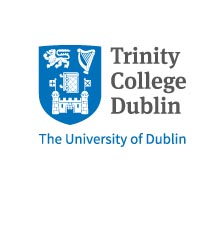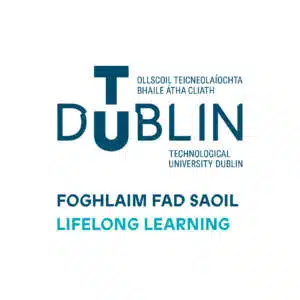Course Description
Micro-credential – Low Carbon Power Technology
Trinity College Dublin
This micro-credential will establish the foundational physical principles that enable the extraction of useful work/energy from various sources (thermal, fluid, chemical, nuclear etc.), and present the current state of the art in power generation machinery.
The important methods of power generation will each be examined, with foundational analysis, in the context of significantly reducing greenhouse gas emissions.
You will learn to analyse energy cycles for the important configurations of steam plants and gas turbines, including analysis of component performance such as pumps, compressors, turbines, heat exchangers and combustors.
You will learn how to analyse advanced natural gas turbine power plants including co-generation plants, trigeneration plants, hybrid GT Fuel cell plants and combined heat and power.
You will learn about technology relevant to waste-to-energy and renewable energies including gasification, anaerobic digestion, pyrolysis, co-generation gas turbines, and biomass combustors.
The main types of hydraulic turbines and pumps will be presented and analysed in the context of hydroelectric power generation and pumped hydro storage. Other methods of large-scale energy will be presented, including thermal storage, compressed air and gas, batteries, and electrolysis. Nuclear energy production will be presented, covering the history of nuclear, underlying physics, basic components, reactor types, neutron moderation, heat transfer and coolant system design. Students will learn to evaluate the different power generation technologies in the context of efficiency, cost, flexibility.
How will this Micro-credential be delivered?
This micro-credential is available as hybrid learning and can be done entirely online apart from some presentations. You will have:
- Lectures – synchronous online and in-person.
- Tutorials – combination of in-person and online as appropriate.
On successful completion of this micro-credential, learners will be able to:
- Analyse energy cycles for the important configurations of steam plants and gas turbines.
- Analyse component performance including pumps, compressors, turbines, heat exchangers and combustors.
- Analyse advanced natural gas turbine power plants including cogeneration plants, trigeneration plants, hybrid GT Fuel cell plants and combined heat and power.
- Understand technology relevant to waste-to-energy and renewable energies including gasification, anaerobic digestion, pyrolysis, cogeneration gas turbines, biomass combustors.
- Understand the importance of effective storage as part of decarbonising energy.
- Analyse and determine the overall round-trip efficiency of energy storage to judge their viability.
- Evaluate the different power generation technologies in the context of efficiency, cost and flexibility.
HCI Pillar 3 Learner Fee Subsidy: Candidates who meet the eligibility criteria may qualify for an 80% fee subsidy, subject to the availability of subsidized places.
For eligibility details, please refer to the Eligibility Criteria.
| Course Code | DPEEG-LCPT-1M09 |
| College Name | Trinity College Dublin |
| Course Category | Science & the Built Environment, Technology |
| Course Type | Micro-credential |
| Course Location | Dublin, Ireland |
| Location Postcode | Dublin 2 |
| Course Start Date | 8th September 2025 |
| Course Fee | €2,080 |
| Course Duration | 24 weeks |
| Course Times | This micro-credential is available as hybrid learning and can be done entirely online apart from some presentations. You will have: Lectures - synchronous online and in-person. Tutorials - combination of in-person and online as appropriate. |
| Awarding Body | Trinity College Dublin |
| Title of Awarding | 10 ECTS |
| Entry Requirements | Application Deadline: August 12th 2025 Applicants must have a 2.1 grade in a level 8 degree in Engineering or a cognate discipline. CV & Transcript (2:1) |




Comments, Questions & Reviews